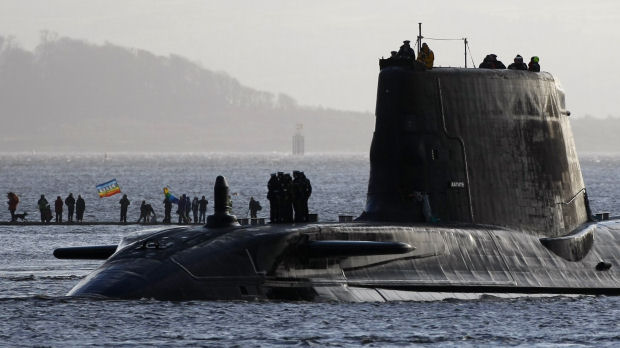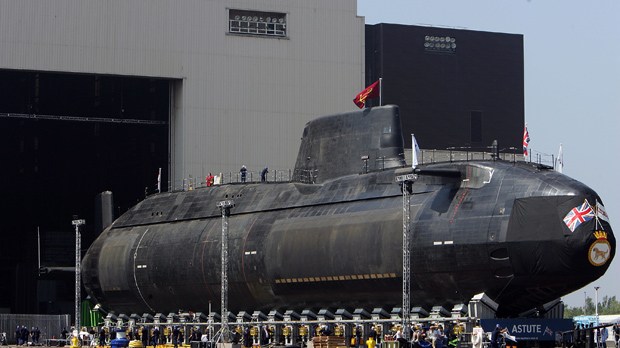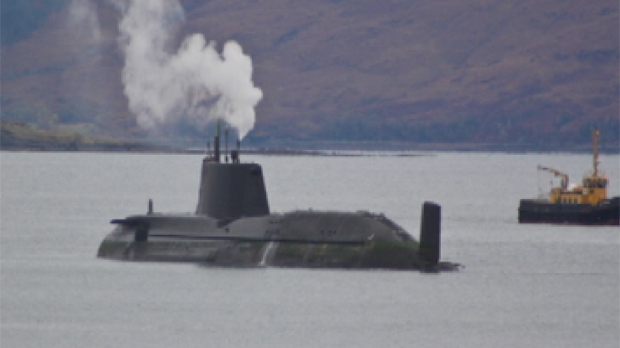Russia came ‘close to nuclear disaster’
As a Russian magazine reports the country came close to nuclear disaster in December following a fire on a submarine, Channel 4 News speaks to an engineer who worked on the salvage of the Kursk.
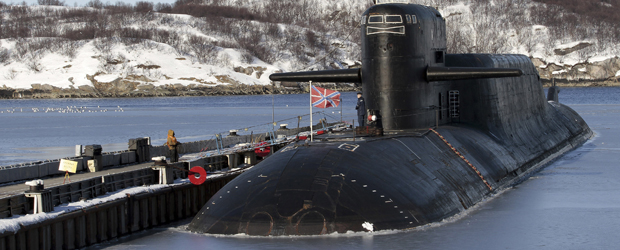
Russian officials said at the time that all nuclear weapons aboard the Yekaterinburg nuclear submarine had been unloaded well before a fire engulfed the 167-metre vessel.
The public was told there was no risk of a radiation leak.
But now the respected Vlast weekly magazine quoted several sources in the Russian navy as saying that throughout the fire on 29 December the submarine was carrying 16 R-29 intercontinental ballistic missiles, each armed with four nuclear warheads.
“Russia, for a day, was on the brink of the biggest catastrophe since the time of Chernobyl,” Vlast reported. The 1986 disaster in modern-day Ukraine is regarded as the world’s worst nuclear accident.
John Large is an engineer who worked the salvage of the Kursk – Russia’s worst post-Soviet submarine disaster which resulted in 118 deaths.
He told Channel 4 News he had “no doubt” there were nuclear weapons on board at the time.
“This could have been a very significant event,” he said.
Read more: Britain's nuclear subs 'potentially vulnerable to accidents'
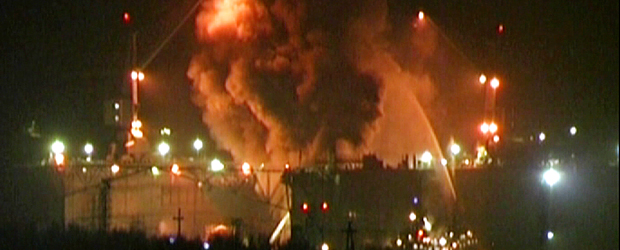
‘Blame game’
The fire started when welding sparks ignited wooden scaffolding around the 18,200-tonne submarine at the Roslyakovo docks, 900 miles north of Moscow.
The rubber covering of the submarine then caught fire, sending flames and black smoke 10 metres above the stricken vessel. Firemen battled the blaze for a day and a night before partially sinking the submarine to douse the flames.
Vlast reported that immediately after the fire the Yekaterinburg sailed to the navy’s weapons store, an unusual trip for a damaged submarine supposedly carrying no weapons and casting doubt on assurances that it was not armed.
“K-84 was in dock with rockets and torpedoes on board,” the magazine said, adding that apart from the nuclear weapons the submarine was carrying torpedoes and mines as well as its two nuclear reactors.
The magazine said that if one of the torpedoes had exploded it could have threatened the nuclear missiles, leading to an extremely dangerous nuclear accident.
John Large said there would now be a “blame game” going on and that the decision not to tell the public the truth at the time was risky: “The big thing about a potential radiation release is the longer you leave it without admitting it, the less effective your precautionary measure, like evacuation, become.”
Neither the Russian Defence Ministry nor the office of Deputy Prime Minister Dmitry Rogozin, who has responsibility for military matters, would immediately comment on the report.
More on submarines
-

HMS Astute shooting: inside the submarine
08 April 2011
-

Submarine accident ‘could cost millions’
25 October 2010
-

Nuclear submarine runs aground off Scottish coast
22 October 2010
